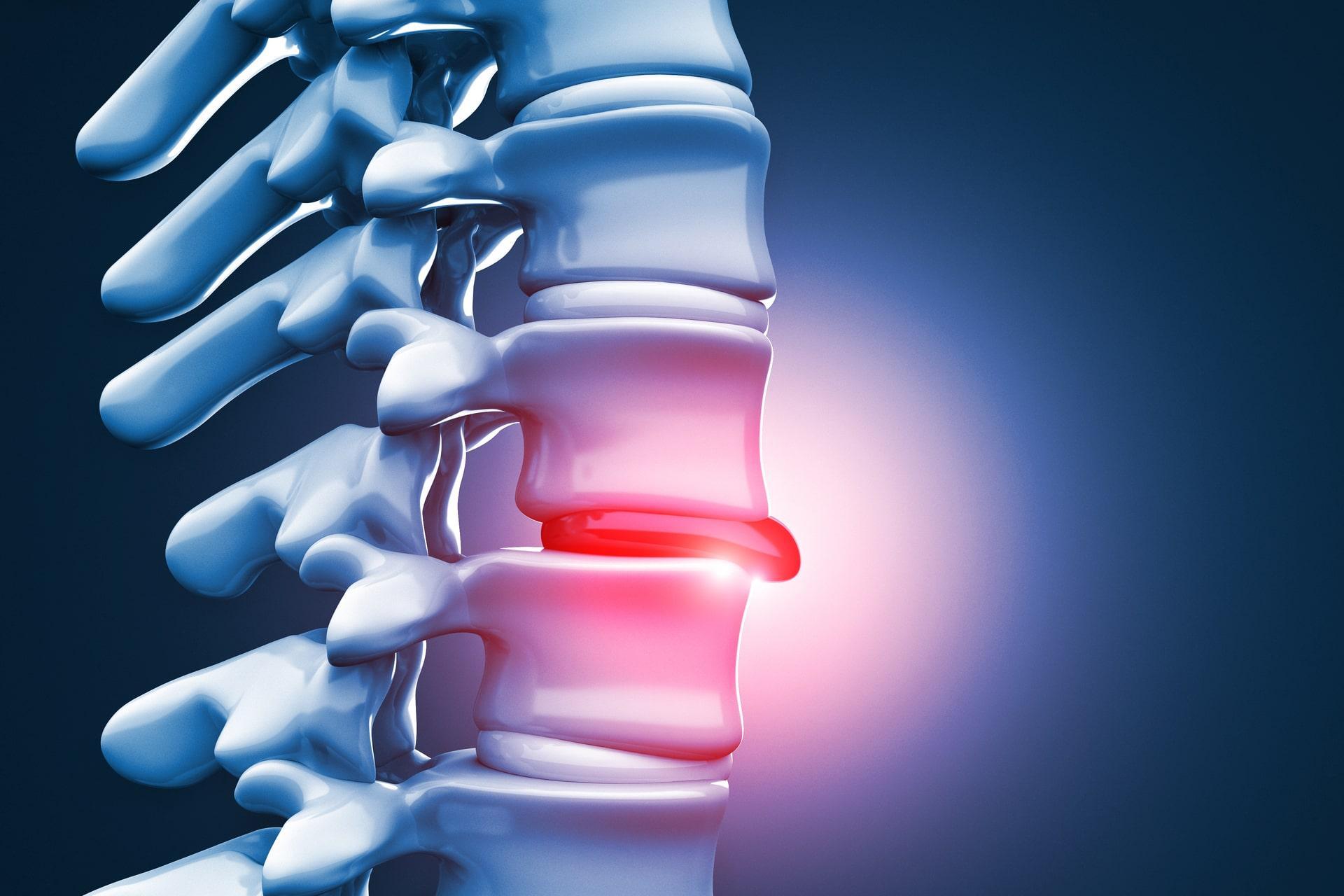Herniated Disc Specialist

Orthopedic Specialists
Orthopedic Surgeons located in Palm Harbor, FL
Herniated discs are common and can occur after an injury to your back or develop over time due to degeneration. Not everyone experiences pain with a herniated disc, but if you do the herniation can irritate your nerves and cause extreme discomfort. The experienced team at Orthopedic Specialists in Palm Harbor, Florida, which includes board-certified surgeons, can develop a treatment plan to relieve any discomfort you experience from a herniated disc. For an evaluation, call the office or schedule an appointment online today.
Herniated Disc Q & A

Herniated Disc Specialist
Herniated Disc Q & A
What is a herniated disc?
A herniated disc, also called a ruptured disc, refers to the bulging or displacement of the rubbery cushion found in between the vertebral bones in your spine. Each vertebra in your spine is cushioned and separated by this disc, which is made up of a jelly-like substance encased in a tough exterior. Herniation occurs when the substance inside the disc breaks through the exterior.
You can develop a herniated disc from an injury. However, the most common cause of a herniated disc is degeneration of the tough exterior of your disc that naturally occurs as you get older, making it more susceptible to tearing. With degenerative disc disease, even the smallest strain can lead to herniation.
Any disc in your spine can become herniated, but they most often occur in your cervical (neck) or lumbar (lower back) spine.
What are the symptoms of a herniated disc?
Symptoms of a herniated disc vary and may depend on the location of the herniation. Not everyone with a herniated disc experiences symptoms, but if you do, common symptoms include:
- Neck or low back pain
- Numbness or tingling sensation that radiates to your legs or arms
- Muscle weakness
If you’re experiencing pain or other symptoms that radiate to your extremities, contact the team at Orthopedic Specialists for an evaluation.
How is a herniated disc diagnosed?
Your doctor at Orthopedic Specialists conducts a comprehensive examination when you come in with complaints of radiating pain to determine the underlying cause. Your examination may include a review of your symptoms and medical history, as well as a physical exam.
In most cases, your doctor should be able to formulate a diagnosis after your examination. However, in some cases, diagnostic imaging, such as an X-ray or MRI, may be necessary for confirmation or to assess the severity of your herniation.
What are the treatments for a herniated disc?
Treatment for your herniated disc may depend on the severity of your symptoms and the extent of the herniation. The team at Orthopedic Specialists may initially recommend conservative modalities to help ease your discomfort, such as:
- Physical therapy
- Over-the-counter pain medications
- Muscle relaxants
- Anti-seizure medication
- Cortisone injections
If you fail to get relief from your discomfort with conservative treatments, the team at Orthopedic Specialists can talk to you about your surgical options, such as:
- Discectomies
- Spinal fusion
- Artificial disc placements
- Laminectomies
The surgeons at Orthopedic Specialists use the most advanced techniques for surgery to minimize your risk.
For an evaluation if you have pain that could indicate a herniated disc, call Orthopedic Specialists or schedule a consultation online today.
services
-
 Little League Elbowmore info
Little League Elbowmore info -
 Cubital Tunnel Syndromemore info
Cubital Tunnel Syndromemore info -
 Distal Biceps Tendon Rupturemore info
Distal Biceps Tendon Rupturemore info -
 Elbow Arthritismore info
Elbow Arthritismore info -
 Elbow Arthroscopymore info
Elbow Arthroscopymore info -
 Elbow Bursitismore info
Elbow Bursitismore info -
 Elbow Fracturesmore info
Elbow Fracturesmore info -
 Elbow Ligament Injuriesmore info
Elbow Ligament Injuriesmore info -
 Golfer’s Elbowmore info
Golfer’s Elbowmore info -
 Tennis Elbowmore info
Tennis Elbowmore info -
 ACLmore info
ACLmore info -
 Labral Tearmore info
Labral Tearmore info -
Shoulder Arthritismore info
-
Shoulder Impingementmore info
-
 Shoulder Tendinitismore info
Shoulder Tendinitismore info -
 Dislocated Shoulder/Shoulder Instabilitymore info
Dislocated Shoulder/Shoulder Instabilitymore info -
 Chondromalaciamore info
Chondromalaciamore info -
 MCL/LCL/PCL Tearsmore info
MCL/LCL/PCL Tearsmore info -
 Meniscus Tearmore info
Meniscus Tearmore info -
 Patellofemoral Pain Syndromemore info
Patellofemoral Pain Syndromemore info -
Synovitismore info
-
 ACL Injurymore info
ACL Injurymore info -
 Achilles Tendinitismore info
Achilles Tendinitismore info -
 Ankle Arthritismore info
Ankle Arthritismore info -
 Ankle Sprainmore info
Ankle Sprainmore info -
 Osteochondral Lesion of the Talus (OLT)more info
Osteochondral Lesion of the Talus (OLT)more info -
Plantar Fasciitismore info
-
Foot and Ankle Osteoarthritismore info
-
 Hallux Rigidus (Big Toe Arthritis)more info
Hallux Rigidus (Big Toe Arthritis)more info -
 Midfoot Arthritismore info
Midfoot Arthritismore info -
 Carpal Tunnel Syndromemore info
Carpal Tunnel Syndromemore info -
 Dupuytren’s Contracturemore info
Dupuytren’s Contracturemore info -
 Trigger Fingermore info
Trigger Fingermore info -
 Avascular Necrosismore info
Avascular Necrosismore info -
 Hip Bursitismore info
Hip Bursitismore info -
 Hip Labral Tearmore info
Hip Labral Tearmore info -
 Hip Tendinitismore info
Hip Tendinitismore info -
 Wrist Ganglion Cystmore info
Wrist Ganglion Cystmore info -
 deQuervain’s tendonitismore info
deQuervain’s tendonitismore info -
Hip Osteoarthritismore info


































